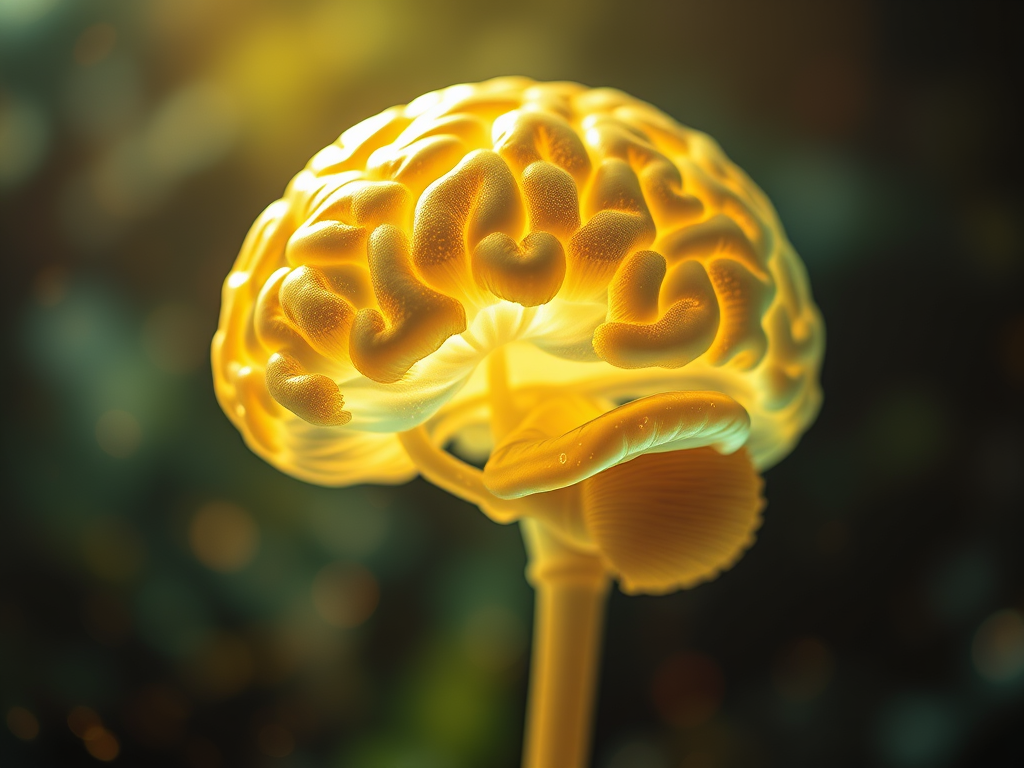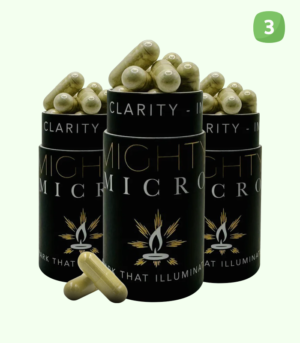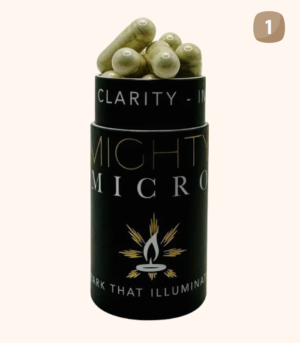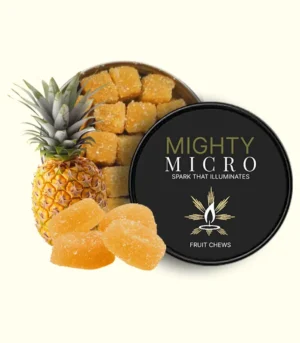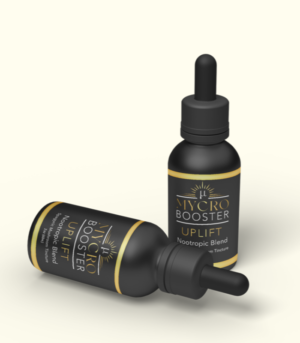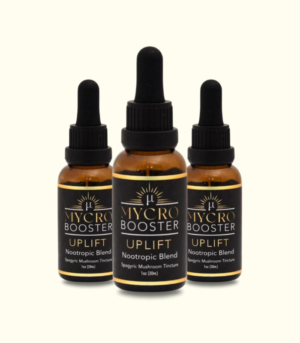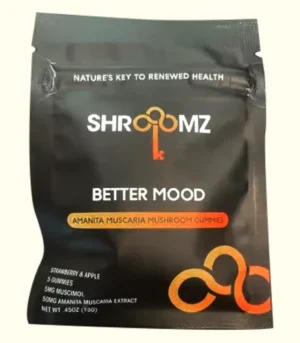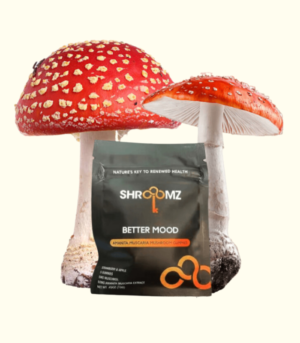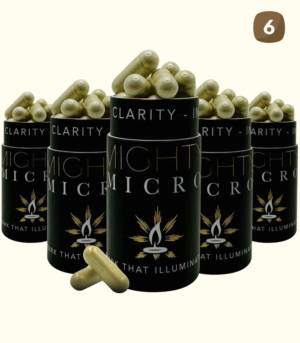In recent years, psilocybin, the active compound in magic mushrooms, has drawn significant attention due to its potential therapeutic benefits. Known for interacting with the brain’s serotonin receptors, psilocybin produces a range of cognitive effects, including improved focus, enhanced creativity, and emotional regulation. In higher doses, psilocybin can induce altered states of consciousness, making it valuable in various therapeutic settings. But how exactly does psilocybin affect the brain, and what benefits can it offer for mental health?
What is Psilocybin?
Psilocybin is a naturally occurring psychedelic compound found in over 180 species of mushrooms, commonly referred to as “magic mushrooms.” When ingested, psilocybin is converted into psilocin, the active form of the compound. Psilocin binds to serotonin receptors in the brain, specifically those responsible for regulating mood, perception, and cognition. Traditionally, psilocybin has been used in spiritual rituals by Indigenous cultures, but now it’s being heavily researched for its potential to treat mental health conditions, including depression, anxiety, and PTSD
How Psilocybin Interacts with Serotonin Receptors
Psilocybin’s primary mechanism of action is through its interaction with the serotonin system, particularly by binding to the 5-HT2A receptors in the brain. These receptors play a crucial role in regulating mood, cognition, and perception.
The Role of 5-HT2A Receptors in Mood and Cognition
The 5-HT2A receptor is a subtype of serotonin receptor that impacts emotional regulation, decision-making, and creative thinking. When psilocybin binds to these receptors, it triggers a cascade of neural activity that can enhance cognitive flexibility—the ability to switch between different tasks or thoughts efficiently—and problem-solving skills. Increased neural activity also explains why psilocybin users often experience heightened sensory awareness and feelings of euphoria
Improve Mood and Cognition Through Microdosing Magic Mushroom
Enhanced Neural Connectivity and Sensory Experiences
Psilocybin also increases neural connectivity, which enhances communication between different brain regions. This creates a synchronized brain state, enabling individuals to experience heightened sensory perception.
Users report seeing more vivid colors, enhanced patterns, and a deeper connection to art and music. This neural connectivity is also responsible for the altered states of consciousness and hallucinations that occur at higher doses. These profound experiences can lead to personal insights and a deeper understanding of oneself, which is why psilocybin is increasingly studied in therapeutic settings
Psilocybin and Neuroplasticity
One of the most exciting effects of psilocybin is its ability to promote neuroplasticity—the brain’s capacity to reorganize itself by forming new neural connections. Neuroplasticity is essential for learning, memory, and adapting to new environments.

How Psilocybin Promotes Cognitive Flexibility
Through neuroplasticity, psilocybin can enhance cognitive flexibility—the ability to adapt thinking and behavior in response to changing circumstances. This flexibility allows individuals to approach problems from new perspectives, think creatively, and overcome mental rigidity, which is often a hallmark of mental health disorders like depression and anxiety.
The improved cognitive flexibility associated with psilocybin has piqued the interest of professionals in creative industries, as it fosters divergent thinking and innovative problem-solving.
Short-Term Effects of Psilocybin on the Brain
The effects of psilocybin depend on the dose taken. In smaller doses, often referred to as microdosing, individuals experience subtle cognitive benefits. In larger doses, psilocybin produces more pronounced effects, including hallucinations and altered perceptions.
Microdosing: Enhancing Focus, Creativity, and Emotional Regulation
Microdosing refers to taking sub-perceptual doses of psilocybin, typically 1/10th to 1/20th of a full dose. This practice is popular among professionals who seek enhanced focus, creativity, and emotional balance without the intense effects of a full psychedelic experience. Users report increased mental clarity, reduced anxiety, and better problem-solving abilities while microdosing.
Larger Doses: Hallucinations and Introspective Experiences
In higher doses, psilocybin induces more intense effects, including visual hallucinations, altered perceptions of time, and deep introspective experiences. Many users describe a heightened sense of connection to the world and an increased awareness of self, making larger doses useful in psychedelic-assisted therapy for conditions like depression and PTSD. These introspective experiences can lead to significant personal insights and emotional breakthroughs.
Long-Term Potential of Psilocybin for Mental Health
Research into the long-term effects of psilocybin is still in its early stages, but early studies are promising, especially regarding its role in treating mental health conditions like depression, anxiety, and PTSD.
Psilocybin for Depression and Anxiety
Clinical trials have demonstrated that psilocybin can significantly reduce symptoms of depression and anxiety, with effects lasting several months after a single treatment. Psilocybin works by “rewiring” neural circuits involved in emotional regulation, providing hope for individuals who have not responded well to traditional antidepressants
Psilocybin and PTSD Treatment
There is also growing interest in using psilocybin to treat PTSD (Post-Traumatic Stress Disorder). In psilocybin-assisted therapy, patients can revisit and process traumatic memories in a safe environment, helping them reduce emotional distress and heal from their trauma. Studies are ongoing, but early results are promising.
Risks and Ethical Considerations
Despite its potential, psilocybin is not without risks. It is classified as a Schedule I drug under U.S. federal law, meaning it is illegal in most states. However, Oregon and Colorado have decriminalized psilocybin for therapeutic use, and several other states are considering similar measures BioRxiv.
Additionally, psilocybin can cause anxiety, paranoia, or psychological distress in some users, particularly in uncontrolled or unregulated environments. It’s crucial for anyone considering psilocybin to be fully aware of the legal and psychological risks involved BioRxiv.
Conclusion: Psilocybin’s Impact on the Brain
Psilocybin’s interaction with serotonin receptors and its ability to enhance neuroplasticity make it a powerful tool for improving cognitive flexibility, creativity, and emotional regulation. While research is still ongoing, early findings suggest psilocybin could revolutionize the treatment of mental health disorders like depression, anxiety, and PTSD. However, it is essential to proceed with caution, considering the potential psychological risks and legal implications.
As the scientific community continues to explore psilocybin’s benefits, it may become a widely accepted tool in mental health treatment, offering new hope for those seeking alternative therapies
External Sources for Further Reading:
JAMA Psychiatry Study on Psilocybin and Depression:
This clinical trial explores the effectiveness of psilocybin in reducing depression symptoms, showing promising results for treatment-resistant depression. You can access the full study here:
JAMA Psychiatry Study on Psilocybin and Depression
Effect of Microdosing on Cognitive Flexibility:
This study investigates how microdosing psychedelics influences creativity and cognitive flexibility, suggesting potential cognitive benefits. You can read the detailed findings here:
Effect of Microdosing on Cognitive Flexibility
Journal of Psychopharmacology:
The Journal of Psychopharmacology publishes research on the effects of drugs on the brain and behavior, including studies on psychedelics like psilocybin. Browse the journal for more articles here:

